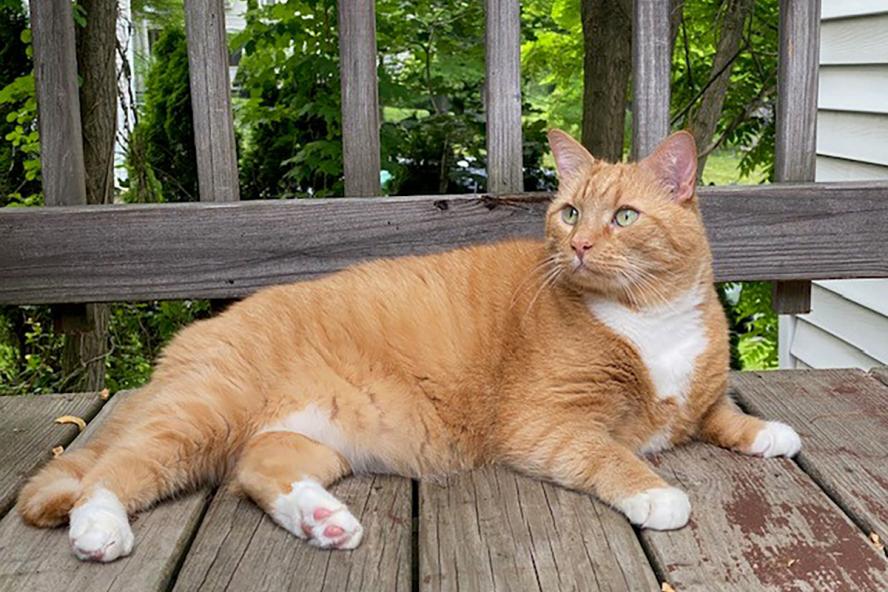-
About
- Leadership & Faculty
- News & Events
-
Admissions
-
Academics
- Graduate
- Advanced Clinical Training
- Continuing Education
- Academic Departments
- Academic Offices
- Simulation Experiences
-
Student Life
- Offices
-
Research
-
- Transformative Research
-
-
Hospitals & Clinics
- Emergency Care
- Hospital Services
-
Community Outreach
- Volunteer
How does being overweight affect my cat?
Ask the Expert

With nearly 60% of cats overweight, there are several problems they may face when they are too heavy. If your cat is overweight, it is at risk for some common issues.
Diabetes
Obesity increases the risk factor for diabetes among felines, but it can also make diabetes more difficult to control. So, getting that extra weight off is an important part of treatment for overweight cats and, in some cases, it may result in remission (i.e., from the cat’s reliance on insulin). Studies show that in cats less than a year old, their sensitivity to insulin can be changed by obesity, so keeping cats thin is important.
Urinary Disease
Obesity can also be a risk factor for feline lower urinary tract disease (FLUTD) and, just like diabetes, getting that extra weight off is a mainstay of treatment, along with specific diet modifications, stress management, and encouraging lots of water intake. To set an indoor cat up for success, in addition to a healthy diet, a feline should have a litter box; a place to scratch, rest, and perch; as well as toys to encourage activity and control stress.
Osteoarthritis
Compared to lean cats, overweight cats are almost five times as likely to develop lameness, which requires a veterinary visit. For osteoarthritis cats that are overweight or obese, weight loss reduces extra stress on joints and could help in avoiding joint damage.
Conditions You Can’t See
It’s not just the extra weight on the joints that can cause a problem, but fat tissue can be a source of constant inflammation throughout the body, which may lead to other diseases. You might not see these changes, but this fat produces hormones that increase stress and inflammation in the body. The best time to fix this is before you see any problems in your cat.
Quality and Quantity of Life
Though we’re still waiting on lifetime studies in cats, we know that dogs who are trim live longer (two years on average!) than their mildly overweight counterparts. These trim dogs also had reduced risk of some diseases or developed the diseases later in life. Cats may well see similar benefits.
Conclusion
There are problems stemming from obesity that involve almost every system in the body. Even without signs you can see, obese cats have higher anesthesia risks, medical costs, and require special care in selecting the correct dose for medications. Excess weight is easier to prevent than treat, so keeping a lifelong healthy weight will help keep cats healthier and happier.
Dr. Deborah Linder, V09, is board-certified veterinary nutritionist at Cummings School of Veterinary Medicine at Tufts University. She leads Tufts Obesity Clinic for Animals at Henry and Lois Foster Hospital for Small Animals.
Learn More about Cummings School Nutrition
Cummings School offers nutritional expertise and services from our Board Certified Nutritionists
Department:
Foster Hospital for Small Animals
